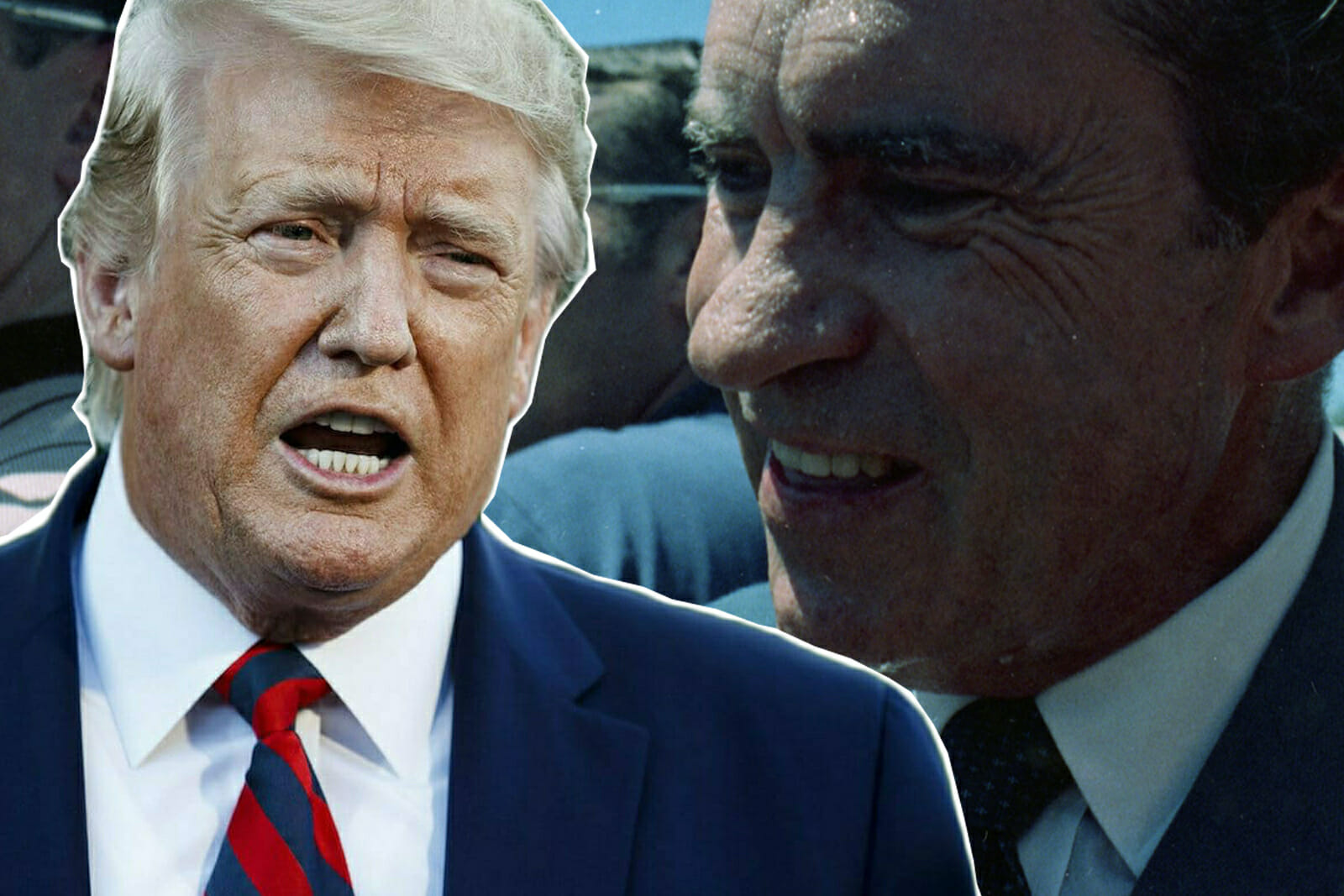
Politics
The Case for Sedition Charges Against Trump
On Wednesday, the U.S. Congress was delayed in certifying the results of the November election as the Capitol attempted to stave off riots. Vice President Mike Pence was evacuated, at least two bombs were found, and members of Congress barricaded themselves with furniture on the House floor. Protestors breached the makeshift barricades and roamed the building. Tear gas was unleashed, and several people were carted off to the hospital with four people lying dead. For the first time since the War of 1812, the Capitol was breached, and, more startlingly, it was the first time a president encouraged sedition by alleging the election was stolen.
Calls from conservatives and liberals, the first sniff of bipartisanship we have seen in some time, denounced the violence. Calls came for an invocation of the 25th Amendment to remove the president, or perhaps, a last-minute impeachment. But some went further. San Jose Mayor Sam Liccardo, among others, demanded that Trump be brought up on sedition charges. By even the most gracious interpretation, it is easily warranted.
On September 8, 1974, President Gerald Ford pardoned a disgraced Richard Nixon. Pardoning Nixon was so immensely unpopular that this act was credited for causing Ford to lose the 1976 election. Ford would later take to carrying around a snippet of the 1915 Burdick v. United States Supreme Court decision, which held that the acceptance of a pardon by its very nature carried an imputation of guilt. Why, in other words, would someone accept a pardon if they had not been accused of a crime? Why, in other words, would someone accept a pardon if one truly had not committed any wrongdoing? Ford seemed to want to suggest it also held an implicit confession of guilt.
If recent history had stopped before yesterday this would have been relevant primarily as a matter for considering presidential pardons. There has been a growing affinity for limiting the power of the pardon since Trump issued a slew of egregious pardons to his cronies (and had floated the concept of pardoning himself): including men who had, in the most extreme cases, committed treason, and were guilty not merely of corruption, avarice, and war crimes. In this way, Roger Stone and Paul Manafort escaped prison, just as people like former Congressman Duncan Hunter escaped prison time entirely for campaign finance abuses and a trio of heartless Blackwater mercenaries escaped justice for gunning down Iraqi civilians. A fact pattern of cronyism, disregard for law and human rights, and a shameless subversion of democratic and judicial processes were displayed, and not for the first time.
However, to return to our historical analogy, the Ford pardon did not simply avert a heated court proceeding. It also allowed Nixon to skip the indignity of facing charges for attempting to rig an election. This is the sense in which the lessons of the Ford pardon are of interest to us today: former presidents can be charged with crimes committed while in office. The arm of the law reaches even into the office of the president in extreme cases. Otherwise, there would have been no need to pardon Richard Nixon in the first place.
What precisely constitutes an extreme enough case? When Ford pardoned Nixon, the usual line of analysis goes, he avoided the dangerous precedent of bringing up a former president on charges. And certainly, if a president were to be brought on charges for, say, a controversial executive order or a military strike, things which fall into the usual scope of their duties, that would be one thing. To allow a new president to prosecute a rival is self-evidently dangerous and it would discourage losing incumbents from leaving office, lest they face charges. It would also be a dangerous precedent to charge a president simply for a love for the dictator aesthetic– for abuse of the office– or for eroding the democratic process. Trump can be accused and denounced for all of those things, but not charged. We can say the same for the lies and refusal to properly address the coronavirus, which has cost hundreds of thousands of lives and counting.
Similarly, Nixon’s pardon may have been unpopular, but it perhaps rested on a grey-area case. This, however, is a different matter entirely. Sedition claws at the very concepts that underride those arguments for caution.
A handful of facts to keep in mind:
The president willfully (and directly) spread the unsubstantiated delusion that this election was racked by fraud. In fact, his statement during the riots repeated these delusions, egging on rioters.
Trump has flirted with sedition in the past. He refused to commit to a peaceful transition of power since before the first votes were cast, even using the presidency to act against the best interests of the country by initially attempting to block the Biden transition team. Most infamously, from a national stage, he told the Proud Boys, the founder of which was ordered not to enter D.C. due to fear of riots in recent days, to “stand back and stand by,” leaving the door open to sedition. He has also actively floated the idea that the military should intervene to alter the outcome of the election.
He did this after he admitted that he had attempted to rig the election before the votes were cast, such as when he attempted to starve the Post Office of the funding it needed; as well as demanding simultaneously that the votes stop being counted in areas he was carrying the vote and continue being counted in areas where he wasn’t.
Trump has since threatened, cajoled, lied to, and begged other politicians and officials to help him steal the election: such as when he threatened Brad Raffensperger, Georgia’s secretary of state, unless he helped him “find” a little more than 11,000 votes, stepping through the door he cracked open and into sedition. This fact alone shows that Trump did more than play footsie with a coup attempt. Even if there was no other item on this list, this would speak to his intent.
The saving grace was Trump’s lazy ineptitude, along with the fact that he’s unpopular with the military. The strength of our republic rests in its norms, norms that have been consistently shredded by the president. The real dangerous precedent would be to ignore acts of sedition, or to merely punish the feckless rioters who took Trump’s attempt to steal the election to heart. This was a coup attempt, even if it failed. Trump has already threatened more and sustained action, both fundraising, and therefore profiting from this crime, and teasing future attempts to regain the presidency. Failing to pursue sedition charges will allow Trump to continue even after he is out of office. It will also set up a tiered system of justice, encouraging future demagogues to attempt coups, safe in the knowledge that they will not face severe consequences if they fail. If this is not sedition, then there is no such thing. It is our duty to uphold democracy even when others won’t.
Trump can and should be brought on charges once he’s out of office. The main precedent it would set would be that acts of sedition are intolerable, regardless of who commits them. In other words, no-one is above the law. Let the legal system decide whether or not he ought to face jail time. Let justice be served, impartially, and fully.
